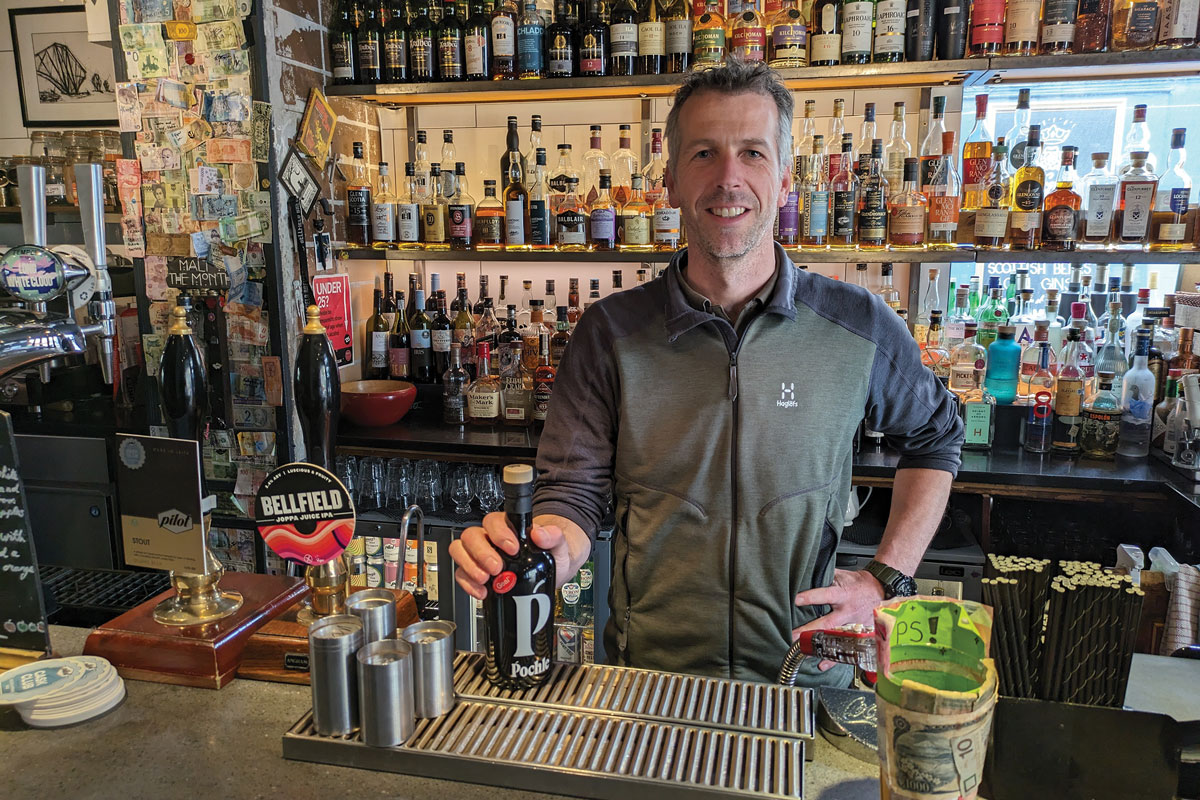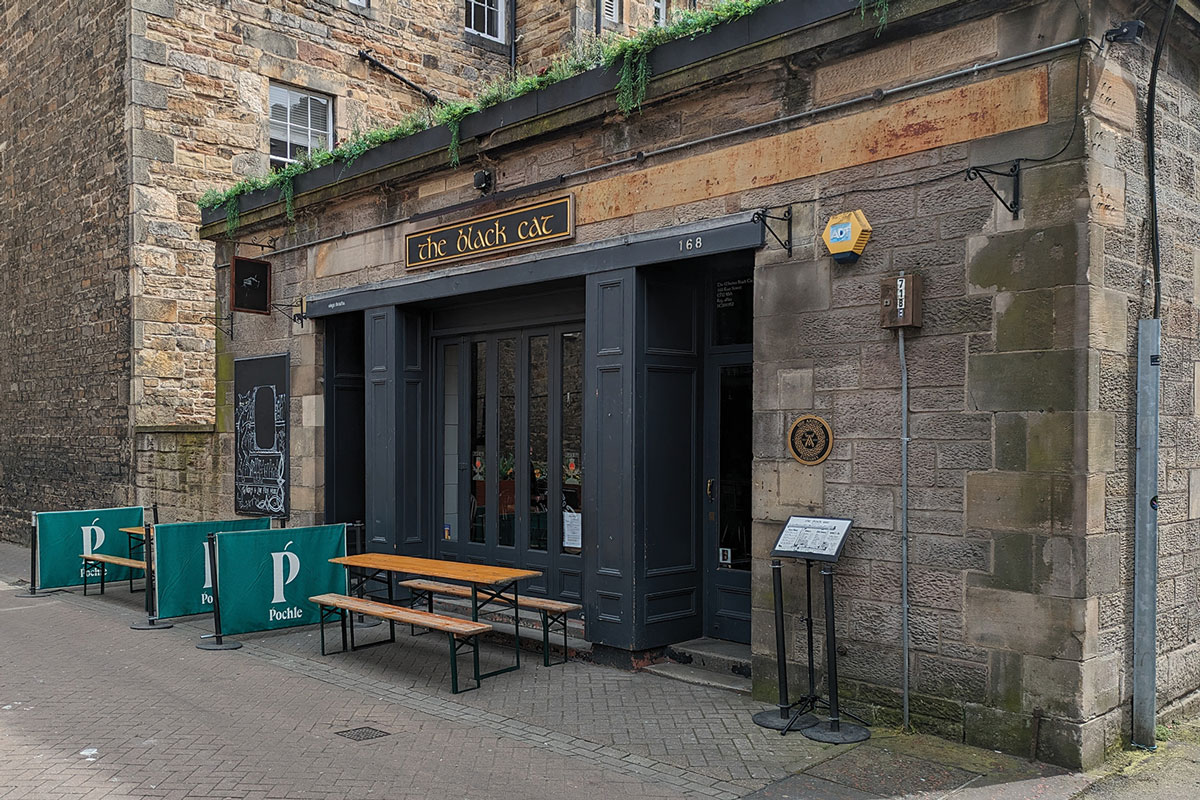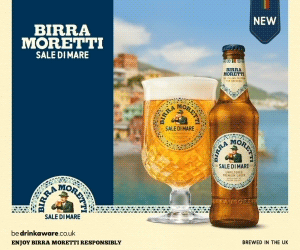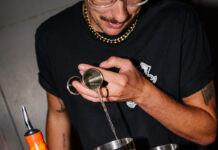
By Dave Hunter
Edinburgh bar owner Chris Miles was no stranger to premium spirits when he took the decision to launch his own several years ago.
Chris, who owns The Black Cat on Rose Street, has worked in the trade since the late ‘90s, when he started working in bars during his student days in Glasgow.
He went on to work in Glasgow bars including Vodka Wodka, Ryan’s and Booly Mardy’s as well as venues in Australia and Prague – where he met his wife, Zuzana.
The couple took on the lease of The Black Cat in 2011, establishing the pub as a mecca for Scottish drinks, including more than a hundred Scotch whiskies and a selection of Scottish beers on draught and in the fridge.
The focus on Scottish drinks – coupled with its central location – have helped establish The Black Cat as a popular tourist pub, as well as for locals and bartenders (the bar is open till 1am, with several surrounding venues shutting at midnight).


With The Black Cat established and trading well, Chris turned his attention to developing his own spirit.
“As a barman I think you want to own your own bar, and then you want to do your own spirit,” he told SLTN.
“And if you’re going to do your own spirit, what does that look like? And what should it look like going into the future?”
Ultimately, Chris drew inspiration from his travels, and his wife’s home country, the Czech Republic, where there is a tradition of distilling brandy, or eau de vie, from surplus fruit.
Pochle is a 44.5% ABV apple eau de vie distilled from apples collected from Edinburgh and the surrounding areas. The apples are mulched and then fermented, essentially creating a cider, which is then distilled twice.
Its name is an old Scots word meaning to own something ‘without exactly having permission’ and is inspired by Chris’s childhood, when he would collect apples from a neighbour’s garden and then sell them back to her in exchange for sweets.
He explained that the thinking behind Pochle was to ‘try and create a spirit that’s circular, something that’s as sustainable as it can possibly be’.
A big fan of tequila, Chris is modelling the Pochle range on tequilas, which tend to come in three varieties: blanco (unaged), reposado (‘rested’ in oak casks for two to 12 months) and anejo (aged in oak casks for over a year).
So far, only the first of the range, Pochle Geal, has been released, with stockists including Nauticus in Leith and The Gate in Glasgow.
“I love tequila so we’re trying to release like tequila,” said Chris.
“So the first one’s our blanco – ‘geal’ just means ‘white’.
“The next one will be our reposado, which in Gaelic is ciùin (calm).”
Pochle Ciùin will likely be aged for between 60 days and 18 months, with Pochle Eòlach (meaning ‘knowledge’ or ‘acquainted with’) matured for between 18 months and five years.
Chris is currently experimenting with a number of different oak casks, including ex-bourbon casks and ex-Pedro Ximenez casks previously used to mature a special bottling of Croftengea whisky released to mark The Black Cat’s 13th anniversary.
However, the release of the second and third versions of Pochle will largely depend on the success of the first, as well as Chris’s ability to secure outside investment.
“My attitude towards sales reps has definitely changed (since launching Pochle),” said Chris.
“It’s a tough job, that. It’s so hard. It’s a lot of effort.”
In the meantime, Chris was in the process of securing the lease to a second bar when he spoke to SLTN, which just so happens to have a handy basement space that might double-up as a microdistillery (Pochle is currently distilled under contract).
Chris said he hopes that, ultimately, he will be able to recruit salespeople to help him build the Pochle brand.
And he’s optimistic that eau de vie is about to have its moment.
“I’ve seen an eau de vie in Lidl,” he said.
“For the first time I’m seeing it in a supermarket. It’s something that can be made sustainably in every country in the world. You can make it from mangoes in India. You can make it from pears in Italy. If consumers want to choose things that are more sustainable, that can’t be a spirit that’s from the other side of the world.”

























